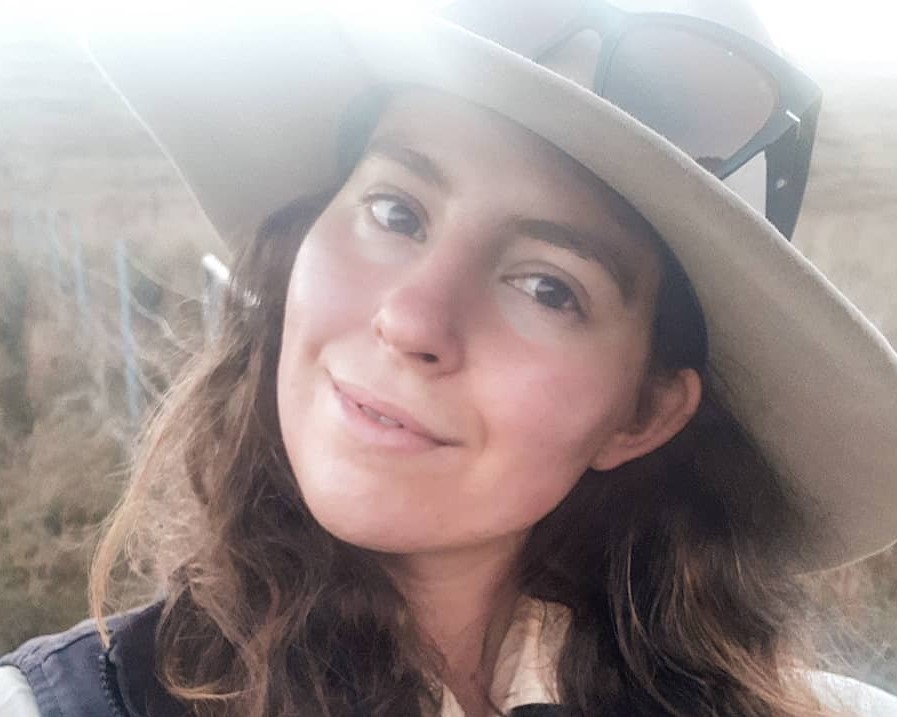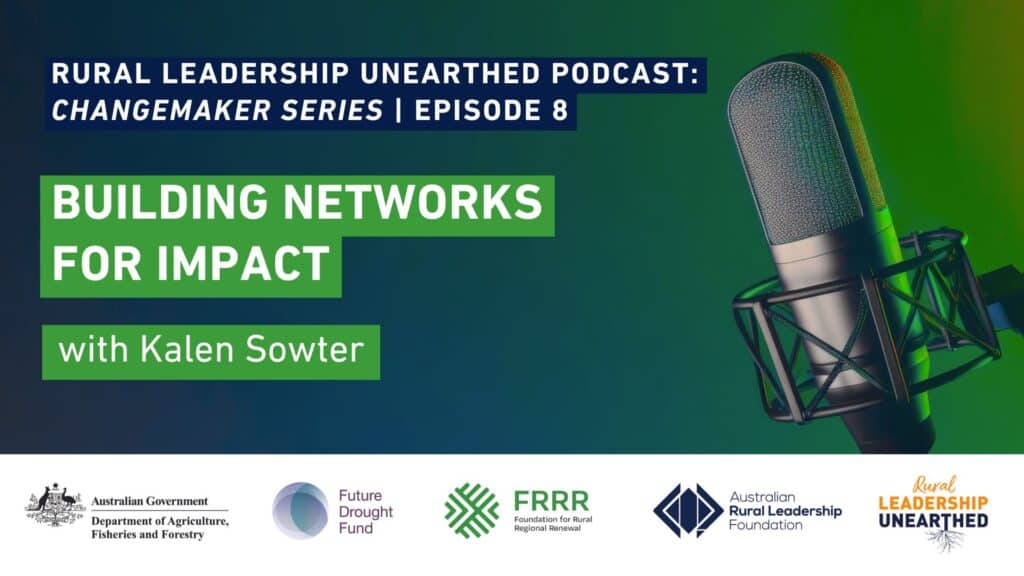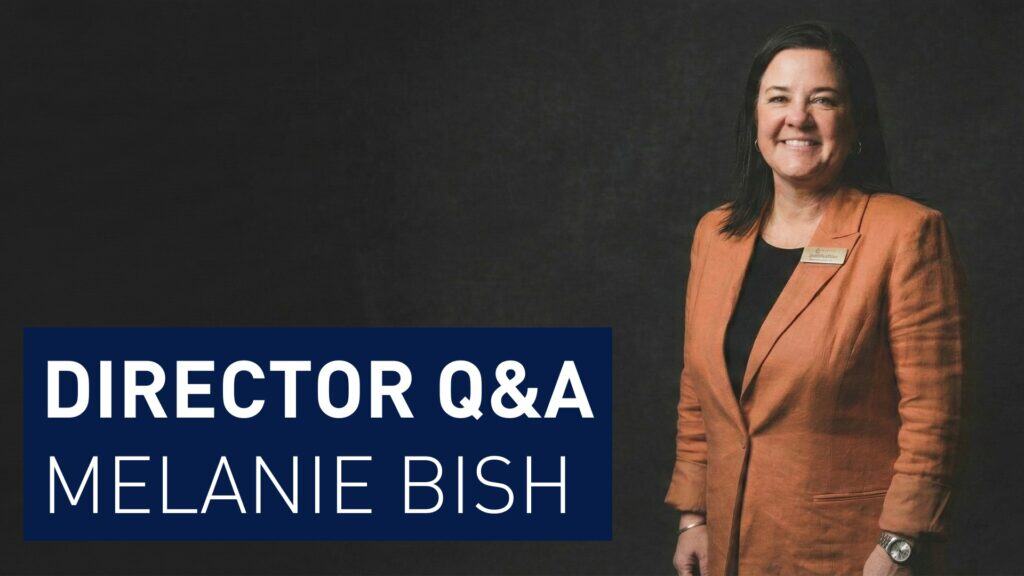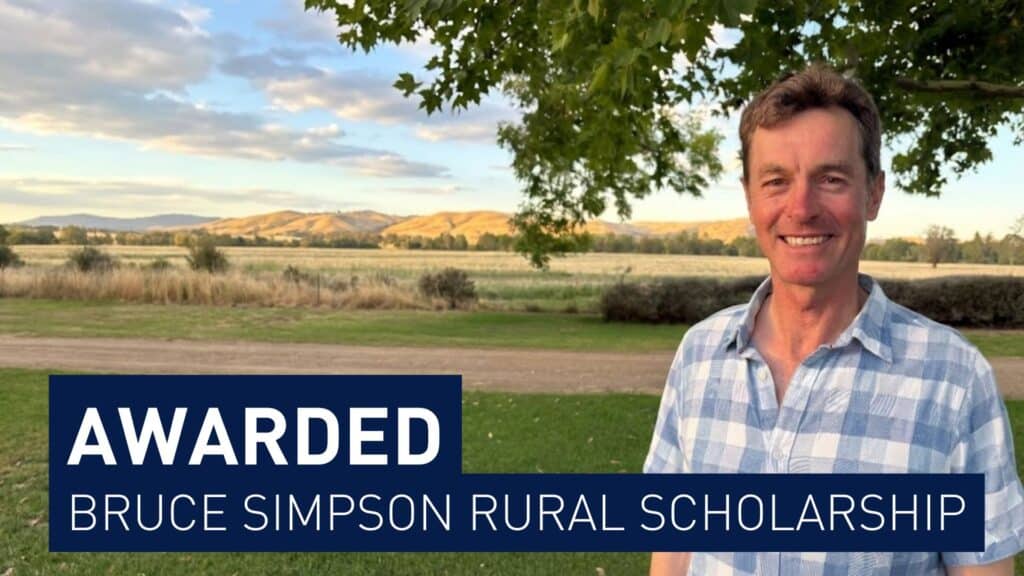On a sheep and cattle property at Currawang, south west of Goulburn, NSW, hard work has been done preparing to hand the farm smoothly from the sixth generation over to the seventh. It’s an example of the kind of leadership that comes naturally to Emma Lipscomb, a young farmer with a singular maturity.
“Going through succession planning has definitely been a life-changing thing. [The succession planner] pointed out that engaging her to get the whole thing started was leadership in itself. I didn’t realise; it just made sense to do it. I’m 25 and my partner’s 27, so we’re quite young and committed to doing this the right way. It’s a tribute to my mum and her foresight as well,” Emma says.
The family’s succession planner also offered Emma a unique parting gift, when she shared a link to apply for the 2020 TRAIL: emerging leaders program, delivered by the Australian Rural Leadership Foundation.
“I was keen to network, as I knew everyone had some rural connection, but I didn’t want to set myself in a box in terms of where it might take me,” Emma reflects on her expectations of the program.
Sponsored by the NSW Department of Primary Industries, Emma saw TRAIL as a chance to deepen her connections in agriculture, but also explore her personal values and ambitions as she made plans for the future.
“From the first session in Tamworth, it was amazing how quickly the safe space to communicate with each other – with strangers – was built,” she says.
“To so openly share and confide things with the outcome of all bettering ourselves and continuing to learn from each other was incredibly positive.”
Even the disruptions caused by a global pandemic held a silver lining for Emma as the TRAIL program broke into digital ‘hubs’ before leaders were able to come back together for a final session in Canberra.
“I tend to think things over in retrospect to digest them, and we had that time to process what we’d experienced in Tamworth,” she says.
“One thing I noticed from meeting and connecting with everyone was that I kept using words like ‘just’ coming from a family farm. I was with others from big industries or parts of larger organisations, and I struggled to accept what my role as a leader was in that context,” Emma reflects.
“TRAIL has helped me accept that how I lead will be by example. Just building that base of being proud of what we’re doing and sharing that story is the best way to make a difference and demonstrate what’s possible,” she says.
With a strong grounding in agriculture, Emma is now adding a bachelor’s degree in health science with naturopathy to her skillset, deepening her philosophies on the interconnection between care of our bodies and custodianship of land.
“I’m working on bridging the gap between industrial agriculture and people’s disconnect from land.” She explains.
As she continues to formulate plans that centre around using an understanding of land to bridge gaps and build connections and trust, Emma says lessons from TRAIL will continue to be front-and-centre.
“TRAIL taught me that it’s not a competition. Celebrate your competitor’s wins, and do not be afraid to give and ask for feedback. I’m going to continue working on the expansion of myself and my confidence in communicating and my ability to support the people working on the farm with me, through this whole business transition … It’s not necessary to have to be a person with a big profile, I can work on things in my own way and still have a positive impact.”






